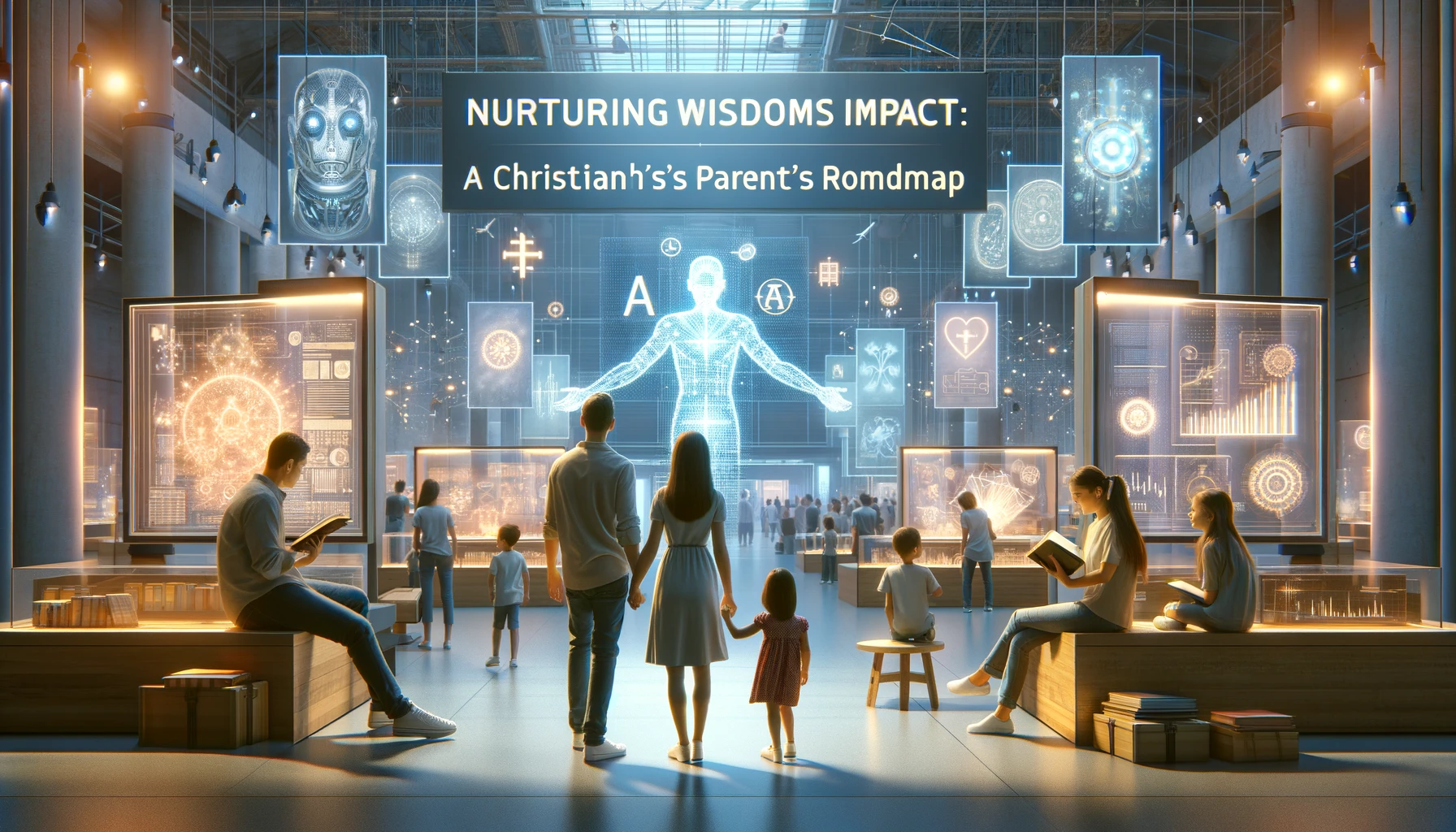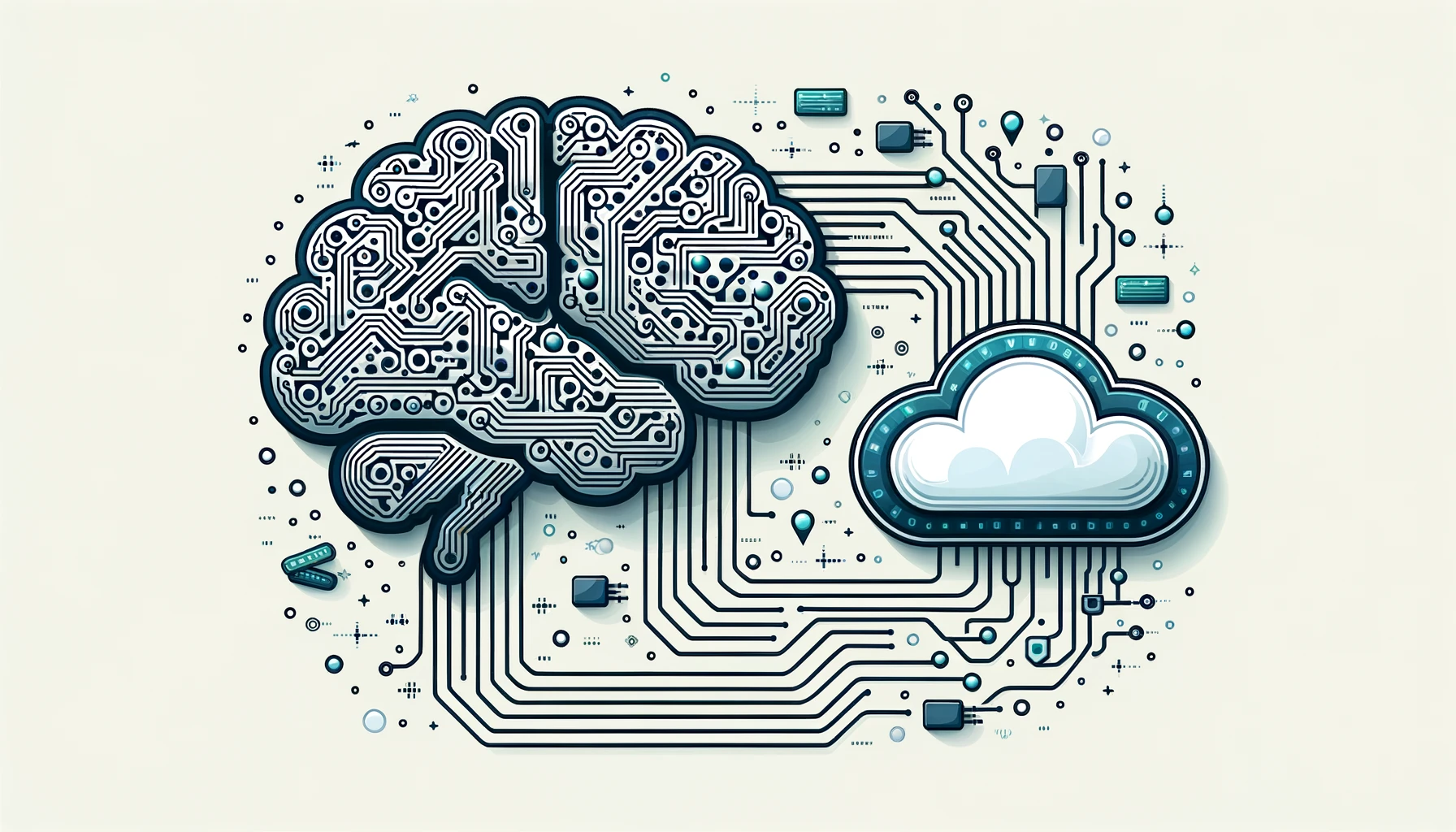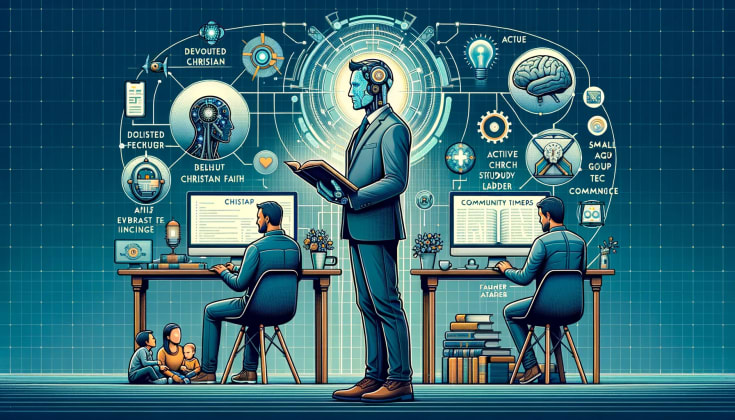🌊 Introduction: Facing the Inevitable AI Wave
First of all, AI is not inherently evil, just as technology itself is neutral;computers, cars, fridges, TVs, all harness forms of AI. If your child uses a smartphone created in the last five years or so, they're already interacting with AI technology. 😲 What's new is AI's advanced ability to generate human-like text based on inputs, leading to unpredictable scenarios when used unsupervised, especially by children.
Second, it is very important as parents (regardless of age, gender or personal feelings about technology) to have a basic understanding of AI, and a general idea of what's going on in the AI space - as well as its potential impact on our children. This is rather to be aware so you can guide your children via biblical wisdom and discernment.
⚖️ The Dual-Edged Sword: AI's Promise and Perils for Children
On one hand, AI presents remarkable opportunities for enhancing our children's education, creativity, and problem-solving abilities. AI-powered learning tools can personalize instruction, making complex concepts more accessible and engaging. Additionally, AI can foster imagination and critical thinking by enabling children to explore and build their own AI models or simulations.
unchecked exposure to AI also harbors significant risks that we must address proactively:
1. 🕳️ The Rabbit Hole of Unsupervised AI Interactions
With the rise of advanced language models like ChatGPT, children may find themselves entangled in unsupervised conversations with AI chatbots. 🐇 These interactions could lead to the dissemination of harmful or inappropriate content, the erosion of critical thinking skills, and the potential normalization of unhealthy relationships with artificial entities. For example,
2. 🌐 The Distortion of Reality and Identity
AI algorithms are not infallible; they can perpetuate biases, spread misinformation, and present a distorted view of the world. Without proper guidance, children may struggle to discern fact from fiction, leading to a skewed understanding of reality and even affecting their developing sense of identity.
3. 🤔 The Ethical Quandaries of AI's Reach
As AI permeates various aspects of our lives, from healthcare to finance, our children will inevitably face ethical dilemmas surrounding its application. Privacy concerns, job displacement, and the potential misuse of AI for nefarious purposes are just a few of the complex issues they must grapple with. For example, AI-driven surveillance systems can infringe on privacy rights, etc.
4. ⛪ The Spiritual Disconnect from a Tech-Saturated World
In our enthusiasm for embracing AI's potential, we must be cautious not to inadvertently distance our children from the spiritual nourishment found in prayer, nature, and human connections. An overreliance on technology could hinder their ability to develop empathy, emotional intelligence, and a deep connection with their faith.
5. 🌍 The Proliferation of AI-Generated Misinformation
One of the most significant concerns in the age of generative AI is the potential for widespread dissemination of misinformation and fake content. Powerful language models can create highly convincing yet entirely fabricated text, images, and videos, making it increasingly challenging to discern fact from fiction online. Without proper guidance and critical thinking skills, children may fall victim to believing and spreading misinformation, compromising their understanding of reality and eroding their ability to make informed decisions. For example, AI-generated deepfakes can create convincing videos of public figures saying or doing things they never did, leading to widespread confusion and distrust.
6. 📱 The Risk of AI Addiction and Overreliance
The allure of AI-driven entertainment, social media, and gaming can lead to excessive screen time and a dependency on AI-generated content. This overreliance may hinder children's ability to engage in real-world activities, form meaningful relationships, and develop essential life skills. Then there's the loss of motor skills like drawing and painting on paper, which are essential for a child's development - AI can't replace that. 🎨
7. 🤝 The Potential for AI to Perpetuate Biases and Discrimination
AI algorithms can inherit and perpetuate biases present in the data they're trained on, leading to discriminatory outcomes in areas such as hiring, lending, and predictive policing. Children must learn to recognize and challenge these biases, understanding the importance of fairness, equity, and empathy in a world increasingly shaped by AI-driven decision-making. For example, AI trained to filter resumes based on skewed training data that might attribute intelligence to certain demographics over others, can inadvertently filter out qualified candidates because their names or addresses don't fit the algorithm's preconceived notions of intelligence.
We have to acknowledge both the promises and perils of AI to develop a balanced approach ; one that harnesses its benefits while safeguarding our children's well-being and nurturing their physical, emotional, and spiritual growth.
🌱 A Faith-Inspired Framework: Guiding Children Through AI's Landscape

"Train up a child in the way he should go, and when he is old, he will not depart from it." - Proverbs 22:6
As Christian parents, our sacred duty is to guide our children in a manner that aligns with our faith and values. Introducing AI requires between embracing innovation and upholding the principles of our beliefs. We present a faith-inspired framework,a tiered approach that nurtures responsible AI engagement while fostering spiritual growth.
At FaithGPT, we've developed a comprehensive "Tiered Approach" to introducing technology and AI to children at various developmental stages. This framework provides a structured path that balances screen time, clarifies AI's nature, and gradually grants autonomy, all while weaving in continuous dialogue, educational milestones, and faith-inspired mentoring.
The "Tiered Approach" outlines four distinct stages, each tailored to a specific age range and accompanied by screen time guidelines, technology milestones, and parental actions rooted in biblical principles:
Tier 1: Early Exposure (Ages 0-5) - In this initial stage, the focus is on simplicity and limited screen time, complementing traditional play and storytelling with occasional, age-appropriate tech-based activities.
Tier 2: Fundamental Understanding (Ages 6-10) - As children's cognitive abilities expand, this tier emphasizes developing digital literacy, introducing basic coding concepts, and relating AI technology back to God's gift of wisdom and understanding.
Tier 3: Informed Interaction (Ages 11-13) - During the pre-teen years, children gain more autonomous interaction with technology, while parents implement digital hygiene practices, discuss AI's influence, and explore the morality of technology through a spiritual lens.
Tier 4: Guided Independence (Ages 14-18) - In the adolescent stage, teenagers approach AI with increasing independence, while parents transition to a mentorship role, fostering open dialogue about AI's broader impact and aligning tech-related pursuits with Christian purpose and vocation.
By following this faith-inspired roadmap, we can equip our children with the knowledge, discernment, and moral compass necessary to navigate an AI-driven world responsibly and ethically.
📚 Nurturing Wisdom in the Age of AI
As we embark on this journey, let us remember that each stage is flexible and should adapt to our children's unique needs. By weaving spiritual principles into our guidance on AI and technology, we mirror our walk with Christ,intentional, nurturing, and always leading towards His light.
In this rapidly evolving digital landscape, may our children blossom into beacons of wisdom, their faith firmly rooted as they navigate the complexities of an AI-driven world. 🌟 Through continuous dialogue, faith-inspired mentoring, and a steadfast commitment to our values, we can equip them to embrace AI's potential while upholding the virtues that truly matter.
💡 Frequently Asked Questions (FAQs)

Implement parental controls and content filters, and have open conversations about the limitations and potential risks of conversing with AI chatbots unsupervised. Encourage critical thinking and fact-checking, and establish clear boundaries for appropriate interactions.
Make intentional efforts to balance screen time with spiritual practices like prayer, Bible study, and nature-based activities. Relate AI's capabilities back to God's wisdom and creation, fostering awe and gratitude for the divine design behind innovation.
Connect with faith-based parenting communities, seek guidance from trusted spiritual leaders, and explore educational materials from Christian organizations exploring the intersection of faith and technology. Building a support network can provide invaluable insights and encouragement on this journey.
Engage in open dialogues about the ethical implications of AI across various industries, such as healthcare, finance, and beyond. Encourage them to develop a strong moral compass grounded in biblical principles to navigate complex ethical dilemmas with wisdom and integrity.
I'm concerned about AI's potential to perpetuate biases and misinformation. Emphasize the importance of critical thinking, fact-checking, and seeking information from reputable sources. Foster an environment where your child feels comfortable questioning information and expressing concerns. Reinforce the value of wisdom, empathy, and a commitment to truth in the face of AI's potential biases and limitations.
With AI's ability to generate highly convincing content, how can I teach my child to identify misinformation online?
Start by educating your child about the capabilities and limitations of generative AI models. Encourage them to approach online content with a critical eye, verifying information across multiple reputable sources and fact-checking websites. Additionally, instill the importance of media literacy, source evaluation, and recognizing potential red flags, such as inconsistencies, logical fallacies, or content that aims to evoke strong emotional reactions. Ultimately, cultivate a mindset of healthy skepticism and a commitment to seeking truth, even in the face of AI-generated misinformation.
📖 Resources for Christian Parents: Navigating AI's Impact on Children
🌍 Real-world Examples and Case Studies
-
UNICEF's report on children and AI highlights the broad implications of AI on children's rights and development, including education, health, and social services. It calls for ethical considerations to protect children's rights in the AI age, suggesting a collaborative approach with technology companies, civil society organizations, and policymakerssource.
-
AI for Children by UNICEF explores how AI technologies are already part of children's lives, embedded in toys, virtual assistants, and learning tools, emphasizing the need to embed child rights in AI governance policiessource.
📚 Specific Recommendations and Resources

-
LinkedIn's article on child development in the digital age discusses the benefits and risks of AI in child development, suggesting AI-guided learning can be particularly beneficial for children with ADHD and dyslexia. It also highlights the importance of AI in developing critical thinking and problem-solving skills3.
-
HealthyChildren.org provides practical suggestions for parents to navigate AI's impact on children, emphasizing the need for ongoing dialogue between families, schools, and community organizations to maximize AI's benefits while minimizing risks4.
🤔 Addressing Potential Skepticism
-
The UNICEF report outlines the need for ethical considerations to uphold and protect children's rights in the age of AI, suggesting a starting point for exploring how AI aligns with biblical principles of stewardship, creativity, and the pursuit of knowledge1.
-
HealthyChildren.org discusses the rapid changes AI brings to society and the mixed concerns it raises, suggesting a balanced view on AI's potential to solve complex problems and its challenges4.
🛡️ Emphasizing Digital Citizenship and Online Safety
- HealthyChildren.org addresses concerns about AI technology being used for bullying and fraud, emphasizing the importance of setting healthy guidelines for children and teens to navigate AI safely4.
🙏 Exploring AI's Potential Impact on Spiritual Formation
- While the provided resources do not directly address AI's impact on spiritual formation, the emphasis on ethical considerations and the responsible use of AI in education and child development suggests a framework within which Christian values can guide the integration of AI into children's lives123.
🌐 Addressing Potential Socioeconomic Disparities
- The UNICEF report acknowledges the broad impact of AI on children's access to services and learning opportunities, highlighting the importance of considering children's specific needs and rights in the evolution of AI technology. This suggests a need to address socioeconomic disparities in access to AI technology and resources1.







